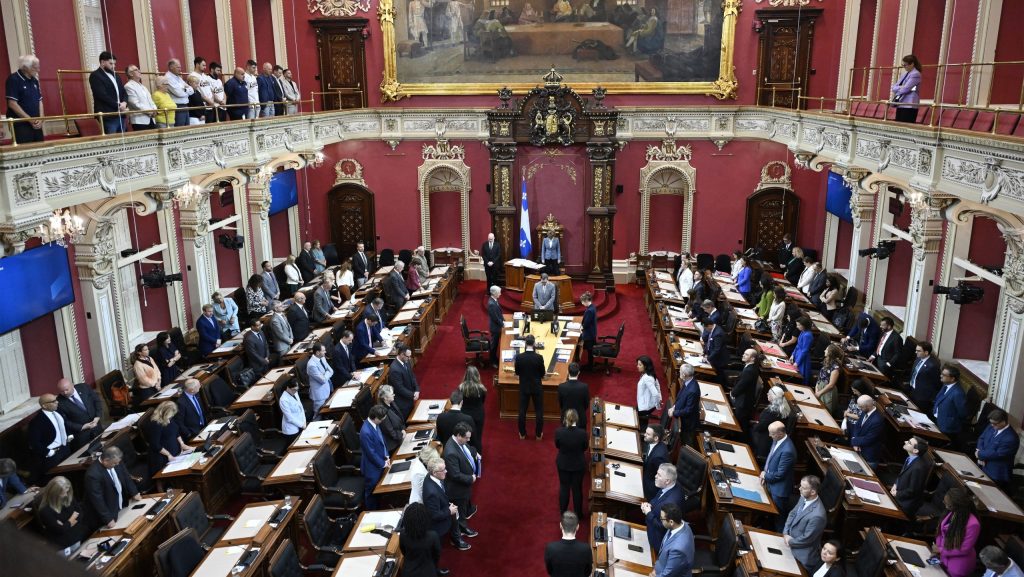Quebec’s Common Front public sector union vote in favour of strike

Posted October 17, 2023 9:22 am.
Last Updated October 17, 2023 3:31 pm.
MONTREAL – A common front of four major Quebec labour unions has voted 95 per cent for an unlimited general strike mandate.
The unions are negotiating as one and represent 420,000 public sector workers in health care, education and social services.
Eric Gingras, president of the Centrale des syndicats du Québec (CSQ) union, says the strong mandate shows members are fed up and want better working conditions. CSQ mainly represents the education community.
“This is historic. We said from the start that the movement was historic – the largest common front, the most numerous, with a mandate that hasn’t been asked for in 40 years. What the members have come to tell us is just two things: they’re fed up, they’re disgusted, and they want to improve their working conditions,” exclaimed Gingras.
François Énault, vice-president of the Confederation of National Trade Unions (CSN), says if workers choose to strike, it likely won’t happen before November.
If there is a strike, essential services will be provided in health and social services, but not in education.
“I think that if the Treasury Board minister needed another signal from our side, from his workers, well they’ve got it there now. At 95 per cent, listen, it’s crazy! It’s unprecedented,” exclaimed FTQ President Magali Picard.
“Very happy! We could already feel that the members were behind us at this negotiation. They were asking about the negotiations; they were outraged. But, to see it, with such a high percentage, well it still gives us a solid boost in the support our members give us, because we’re carrying their voice in these negotiations. It gives us a good balance of power at the bargaining table,” commented Robert Comeau, President of the Alliance du personnel professionnel et technique de la santé et des services sociaux (APTS).
“A strike mandate is a pressure tactic in itself, and at 95 per cent, I hope the government will take into consideration the strength of the mandate obtained from union members,” said Énault.
He emphasized the high participation rates at union meetings. “For my organization, the CSN, it varies from sector to sector, but it’s definitely the best participation rates since the last two rounds of negotiations”. The FTQ also refers to participation rates “much higher than in the past”.
Negotiations
Despite the strike vote, negotiations are continuing with the Treasury Board and the ministries concerned. But Comeau says that for months, “all we’ve been doing is talking about government priorities” without addressing the unions’ priorities.
The unions are seeking a three-year contract with annual increases tied to the inflation rate _-two percentage points above inflation in the first year, three points higher in the second and four points higher in the third.
The Quebec government is offering an increase of nine per cent over five years, as well as a lump-sum payment of $1,000 in the first year and other targeted increases that bring the total offer to 13 per cent over five years.
Premier Legault on Tuesday said, “we consider that our offer, which is an increase, an average increase of 13 per cent over five years, that it covers inflation in average and that it respects the capacity of the taxpayers. So, I think, right now, it’s reasonable. Of course, unions, they always think that they have to have a strike to make sure that they have the best that they can have, so we’ll wait for the strike on October 31st.”
This report by The Canadian Press was first published in French on October 17, 2023.








